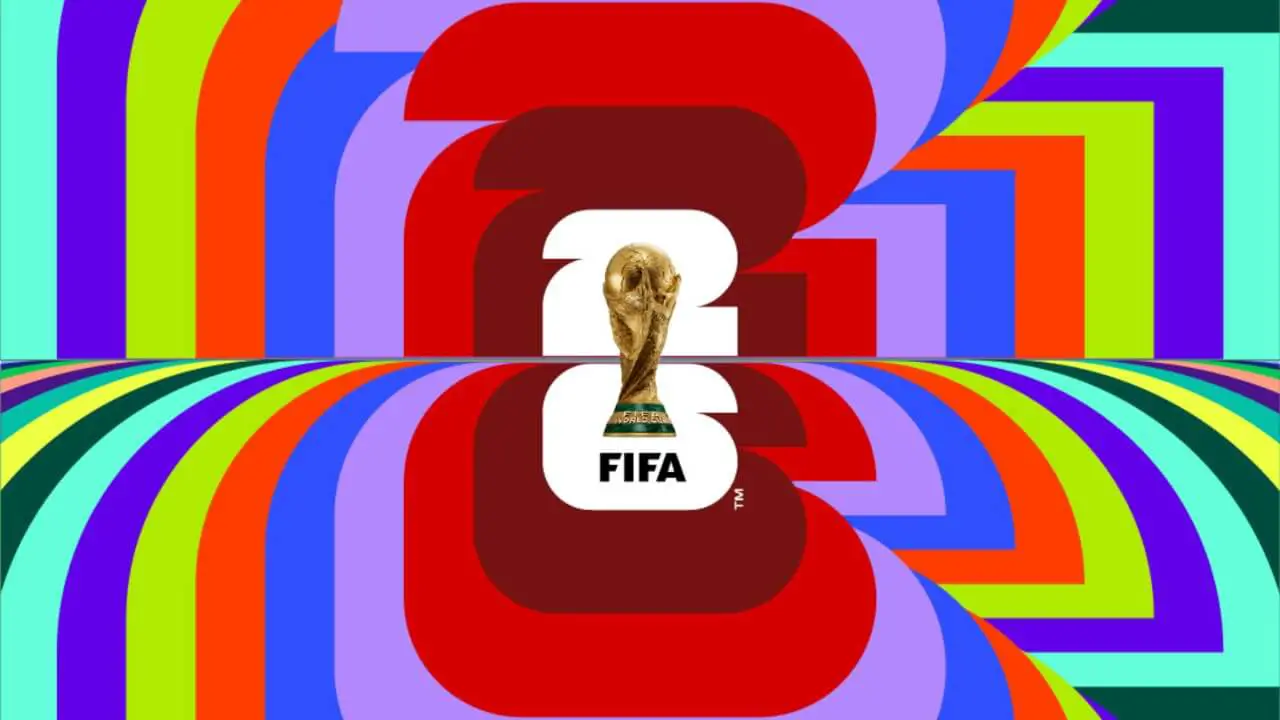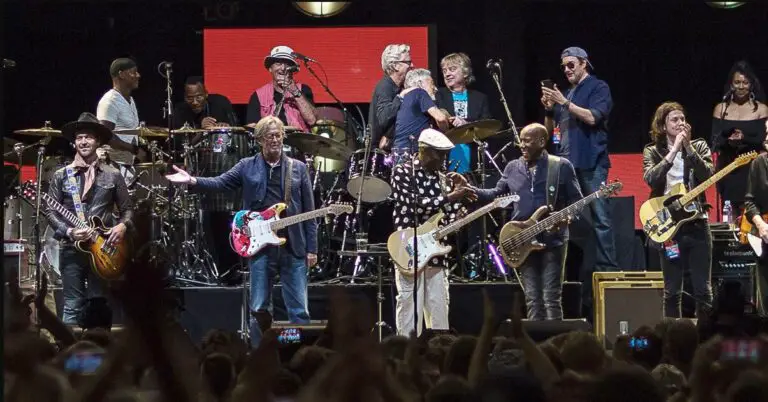
The World Cup is coming back to North America in 2026, with the United States, Mexico, and Canada hosting the expanded 48-team tournament. As the excitement builds for the quadrennial festival of football, one question is top of mind for fans: How much will tickets cost for the 2026 World Cup, and when can I get my hands on them?
The short answer is that while specific ticket prices have not been set, based on projections ticket prices could range from as low as $11 to as high as $954.
In this blog post, we’ll dive into the details around 2026 World Cup tickets:
- A look back at ticket prices from previous World Cups to set expectations
- An overview of the anticipated pricing range based on inflation and other economic considerations
- Outline of the sales timeline and phases when tickets will become available
- Breakdown of factors that will impact final ticket pricing
- Tips for fans to boost their chances of securing coveted tickets
So whether you’re eager to start saving up for VIP treatment at the final in Los Angeles or just want to snag cheap seats for a few group stage matches, read on to get the full picture of what to expect with 2026 World Cup tickets!
Overview of FIFA World Cup 2026
The FIFA World Cup is the most prestigious and widely watched football tournament in the world. The 2026 edition of the tournament promises to be the biggest yet, with 48 teams from around the world expected to participate. The tournament is scheduled to take place from a yet-to-be-determined date in June to July 19, 2026, across 16 host cities in the United States, Canada, and Mexico.
The expansion of the tournament from 32 to 48 teams is expected to generate more revenue through sponsorships, merchandising, ticket sales, and broadcast revenues. This is good news for fans who are eagerly anticipating the tournament, as it means that there will be more tickets available for purchase.
The exact ticket prices for the 2026 FIFA World Cup have not yet been announced, but it is expected that they will be higher than the prices for the 2018 tournament in Russia. Fans should expect to pay a premium for tickets to the most popular matches, such as the opening match, the semi-finals, and the final.
In addition to the increased number of teams and host cities, the 2026 FIFA World Cup will also feature a new format, including an additional knockout round. The tournament promises to be a thrilling spectacle for football fans around the world, with some of the best players and teams competing for the coveted trophy.
Historical Ticket Pricing Trends
Previous World Cup Ticket Prices
Looking at previous World Cup ticket prices can give an idea of what to expect for the 2026 World Cup. The last World Cup held in North America was the 1994 World Cup in the United States. The average ticket price for that tournament was $28. In comparison, the 2018 World Cup in Russia had an average ticket price of $105.
The most expensive tickets for the 2018 World Cup were for the final, with prices ranging from $455 to $1,100. The cheapest tickets for group stage matches were priced at $105.
Inflation and Economic Factors
Inflation and economic factors can also impact ticket prices. Inflation can cause ticket prices to increase over time, while economic factors such as exchange rates and the strength of the economy can also play a role.
For example, the 1994 World Cup had an average ticket price of $28, which would be equivalent to around $50 in 2024 due to inflation. However, the strength of the US economy and favorable exchange rates at the time likely contributed to the relatively low ticket prices.
Overall, it is difficult to predict exactly what ticket prices will be for the 2026 World Cup. However, looking at previous World Cup ticket prices and taking into account inflation and economic factors can provide some insight into what to expect.
Anticipated Ticket Price Range for 2026
The FIFA World Cup 2026 is expected to be the largest World Cup in history, with 48 teams competing in 80 matches across three countries. With such a large scale event, many football fans are eagerly anticipating the ticket prices and sales for this tournament.
Based on the research, the ticket prices for the 2026 FIFA World Cup are expected to range from as low as $10.97 to a high of $954.41. The final price of a ticket will depend on various factors, including the specific match, seat location, and the category of the ticket.
According to reports from the United 2026 World Cup Bid Committee, the ticket prices for the 2026 World Cup are expected to be similar to those of the 2018 World Cup in Russia. The ticket prices for the 2018 World Cup ranged from $105 for the cheapest category 3 ticket to $1,100 for the most expensive category 1 ticket.
It is important that the ticket prices for the 2026 World Cup may vary depending on the location of the match. For example, matches held in larger stadiums or in more popular cities may have higher ticket prices compared to matches held in smaller stadiums or less popular cities.
Football fans can expect the ticket sales for the 2026 World Cup to begin in 2025, with the initial “Phase 1” ticket sale expected to start between August and October of 2025. FIFA is expected to announce the exact dates of the ticket sales closer to the event.
Sales Phases and Timeline
Initial Sales Phase
The initial sales phase for the FIFA World Cup 2026 tickets is expected to begin between August and October of 2025. This phase takes place before the World Cup Draw, which has traditionally been held in December of the year before the tournament. During this phase, fans can expect to purchase tickets through the official FIFA website or authorized ticketing agents.
Follow-up Sales Phases
After the initial sales phase, there will be follow-up sales phases for fans who were not able to purchase tickets during the initial phase. The exact dates for these phases have not yet been announced, but fans should keep an eye on the official FIFA website for updates. During these follow-up phases, fans can expect to purchase tickets through the same channels as the initial phase.
Last-Minute Sales
For fans who are unable to secure tickets during the initial or follow-up sales phases, there will be a last-minute sales phase. This phase is expected to take place closer to the tournament and will offer fans a final chance to purchase tickets. However, it is important to note that ticket availability during this phase may be limited, and prices may be higher than during the earlier phases.
Purchasing Channels and Official Partners
Fans who are interested in purchasing tickets for the FIFA World Cup 2026 can do so through various channels. FIFA has not yet announced the details of the ticket sales process, but it is expected that they will use a similar system to the one used for previous World Cups. This will likely include an online ticketing platform, as well as sales through official partners and authorized resellers.
One of the official partners for the 2026 World Cup is expected to be Visa, which has been a long-time sponsor of FIFA events. Visa is likely to have a significant presence at the tournament, and may offer special promotions and discounts for cardholders who purchase tickets using their Visa cards.
Another potential partner for the 2026 World Cup is Coca-Cola, which has also been a major sponsor of FIFA in the past. Coca-Cola is known for its creative marketing campaigns, and may offer unique opportunities for fans to win tickets or attend special events during the tournament.
Fans should be cautious when purchasing tickets from unauthorized resellers, as these tickets may be counterfeit or invalid. FIFA has warned fans to only purchase tickets from authorized sources, and has provided a list of official ticketing partners on its website.
So, fans can expect a smooth and secure ticketing process for the 2026 World Cup, with a variety of purchasing channels and official partners available to choose from. As more information becomes available, FIFA is expected to provide updates on the ticket sales process and official partners for the tournament.
Factors Influencing Ticket Prices
When it comes to buying tickets for the 2026 FIFA World Cup, there are a number of factors that will influence the price you pay. Here are some of the most important factors to keep in mind:
Stadium Locations and Seating Categories
One of the biggest factors that will influence ticket prices is the location of the stadium and the seating category you choose. Generally speaking, tickets for matches that take place in larger cities or at more prestigious stadiums will be more expensive than those for matches in smaller cities or less well-known venues.
In addition, the seating category you choose will also have a big impact on the price you pay. For example, tickets for seats with a better view of the pitch or closer to the action will be more expensive than those for seats further away.
Match Significance and Team Popularity
Another important factor that will influence ticket prices is the significance of the match and the popularity of the teams playing. For example, tickets for the opening match of the tournament or the final will likely be more expensive than those for matches in the group stages.
In addition, tickets for matches featuring more popular teams, such as Brazil, Germany, or Argentina, will likely be more expensive than those for matches featuring less well-known teams.
Hospitality Packages and VIP Options
Finally, if you’re looking for a truly premium experience, you may want to consider purchasing a hospitality package or VIP option. These packages typically include access to exclusive lounges, premium seating, and other perks, such as food and drink.
Of course, these packages come at a premium price, so they may not be the best option for everyone. However, if you’re looking to make your World Cup experience truly unforgettable, they may be worth considering.
Tips for Securing Tickets
Early Registration and Lotteries
One of the best ways to increase your chances of getting tickets for the FIFA World Cup 2026 is to register early. FIFA typically opens up registration for tickets several months in advance of the tournament, and those who register early may have an advantage over those who wait until the last minute.
In addition to early registration, many tournaments also offer lotteries for tickets. These lotteries allow fans to purchase tickets at face value, and those who are selected in the lottery will receive priority access to tickets. To increase your chances of being selected in a lottery, it is important to register as early as possible and to follow the instructions carefully.
Secondary Market Considerations
If you are unable to secure tickets through the official channels, there are still other options available. One of the most popular options is to purchase tickets on the secondary market. However, it is important to exercise caution when purchasing tickets on the secondary market, as there are many fraudulent sellers out there.
To avoid being scammed, it is important to only purchase tickets from reputable sellers. This may include official resellers or trusted third-party ticket brokers. It is also important to be aware of the risks involved in purchasing tickets on the secondary market, as there is always the possibility that the tickets may be counterfeit or invalid.
By following these tips, fans can increase their chances of securing tickets for the FIFA World Cup 2026. Whether through early registration or the secondary market, there are many ways to get your hands on tickets for this exciting tournament.
Potential Issues and Controversies
Scalping and Unauthorized Sales
One of the potential issues that may arise with the ticket sales for the 2026 FIFA World Cup is the problem of scalping and unauthorized sales. Scalping refers to the act of reselling tickets at a price higher than their face value, while unauthorized sales refer to the sale of tickets by individuals or organizations that are not authorized by FIFA to sell them.
To prevent scalping and unauthorized sales, FIFA is likely to implement measures such as limiting the number of tickets that can be purchased by an individual, requiring identification at the time of purchase, and partnering with reputable vendors to sell tickets. Additionally, FIFA may also use technology such as blockchain to ensure that tickets are sold securely and cannot be counterfeited.
Ticket Allocation and Fairness
Another potential issue that may arise with the ticket sales for the 2026 FIFA World Cup is the problem of ticket allocation and fairness. With millions of fans around the world vying for a limited number of tickets, there is a risk that some fans may be left disappointed or feel that the ticket allocation process was unfair.
To ensure fairness in ticket allocation, FIFA is likely to use a random selection process, where fans who register for tickets are selected at random to receive them. Additionally, FIFA may also prioritize ticket sales to local residents, fans of the participating teams, and members of official fan clubs.
So, while there may be some potential issues and controversies with the ticket sales for the 2026 FIFA World Cup, FIFA is likely to implement measures to prevent scalping and unauthorized sales and ensure fairness in ticket allocation. Fans who are interested in purchasing tickets should stay tuned for updates from FIFA and be prepared to act quickly when tickets become available.
Future Projections and Economic Impact
The 2026 FIFA World Cup is expected to generate significant economic impact across the 16 host cities. According to the Boston Consulting Group, Boston can expect an estimated 450,000 visitors from Europe, South America, and across the globe, with a projected net economic impact of $500 million.
FIFA is also expecting to earn $11 billion over the four-year cycle up to December 2026 through sponsorships, merchandising, ticket sales, and broadcast revenues. In 2026, the United Bid is predicting as much as $2.5 billion in ticket sales, plus $1.5 billion in hospitality revenue. These projections are based on the assumption that the tournament will be held without any major disruptions or incidents.
However, it is important to note that the COVID-19 pandemic has had a significant impact on the sports industry and the economy as a whole. The pandemic has resulted in the postponement and cancellation of many sporting events, and it is possible that it could have an impact on the 2026 FIFA World Cup as well.
Despite these uncertainties, the 2026 FIFA World Cup is expected to have a positive economic impact and generate significant revenue for FIFA and the host cities. The tournament is also expected to attract millions of soccer fans from around the world, creating a vibrant and exciting atmosphere in the host cities.






